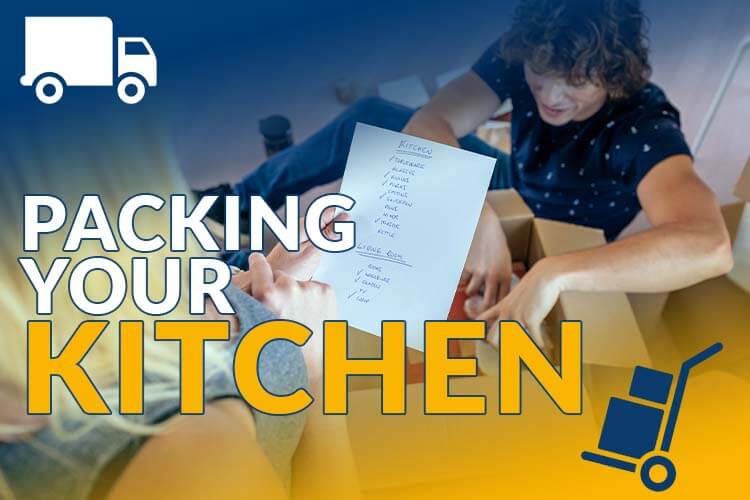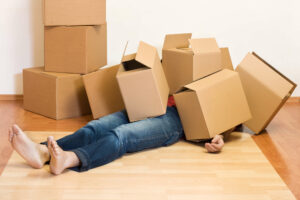Kitchens may be one of the hardest rooms to pack in anticipation of a move. There are cabinets and drawers that need to be packed, along with all the appliances and other things that accumulate. You can use this packing guide to ensure you get everything done so you’re ready for movers.
Preparing for Packing
Sorting items. You will want to go through everything in the kitchen and determine what you are taking with you and what you are selling or donating. Ensure you have a plan for where you are donating items. Shelters and food banks might be good suggestions.
Essentials box. Have a specific box that holds the things you’ll need right away in your new location. This could include soap, dishtowels, coffee maker, toaster, silverware, dishes, and more. This will make unpacking less stressful as you’ll have what you need for a day or two.
Packing materials. Decide how many boxes you will need and then make certain you have plenty. For an average-sized kitchen, about 10 medium boxes, 5 large boxes, and 5 heavy-duty boxes will do. If you need to pack up stemware, wine, or liquor boxes, you might want to pick up a few cell kits, as well. In addition to that, have some newsprint or other materials to package fragile items. You’ll also want to have packing tape and markers or labels or both.
Packing Infrequently Used Items
Start by packing things you won’t need on a regular basis. Some of the things that might be good to start with are decorations and art, dishes used mainly for special events, special utensils like ladles, mallets, and tongs, cookbooks, extra oven mitts and dish towels, cookie sheets, mixing bowls, wine glasses, vases, and food storage containers.
Packing Drawers
Packing drawers can require a lot of effort just because of the sheer number of items we keep around. A good idea is, to begin with, the messiest drawer and work from there. If there are extras or things you nearly never use, don’t take it. Give it away or sell it at a yard sale.
If you haven’t packed cookbooks, this can be done now. Pack them flat to avoid injury to their spines. Pack them in a way that makes sense. If you have books you use often, try to keep them toward the top so you can get to them easily when in the new home.
When packing cutlery, make sure you have a set for each family member in your box of essentials. The rest can be packed with regular kitchen items.
Packing Liquor and Wine
For those who have a collection of wine or alcohol, it’s a good idea to start early on in the moving process. You can also pack up other items in glass bottles, like fine vinegar or cooking oils. Just make sure it’s worth the cost of moving and can’t be easily replaced once you’re in the new home.
Packing Dishes
When you pack glasses and other stemware, remember to use the cell boxes. It makes everything so much easier. This step can take time because you want to ensure you pack well so nothing gets damaged. At this point, you can also start packing up plates, bowls, and other random items around the kitchen. You can also pack most of your pots and pans, but be certain to keep at least one all-purpose pan or pot for your box of kitchen essentials.
Emptying the Pantry
If you sorted through the pantry earlier, it shouldn’t be hard to pack up the things you wish to keep. Decide what’s worth moving and what isn’t for the upcoming moving and pack up the things that are crucial. If you’re bringing any open food cartons, make sure to tape them up. This is a good idea no matter how far away you are traveling.








